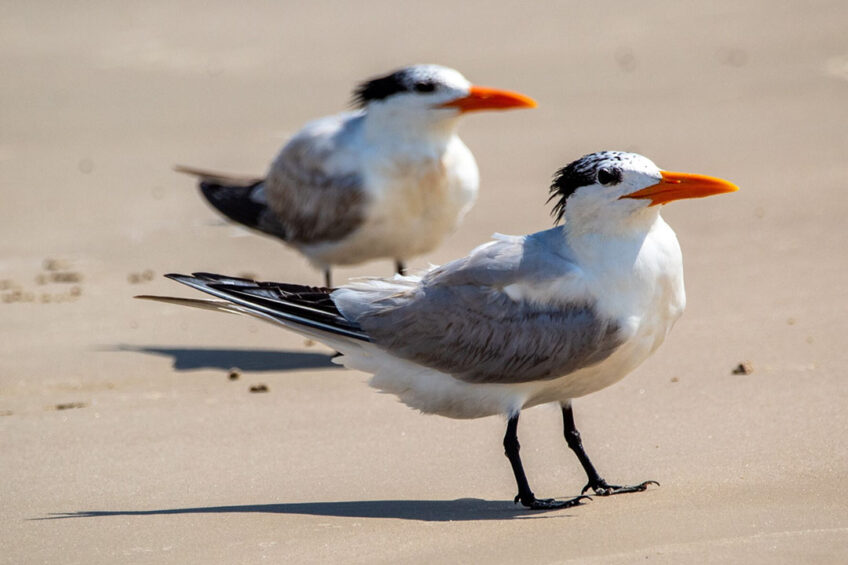Brazil confirms first cases of avian influenza

The Brazilian Ministry of Agriculture and Livestock (Mapa) has confirmed the first cases of avian influenza in Brazil. Two wild birds infected with the highly pathogenic avian influenza (HPAI) virus were identified on the coast of Espírito Santo state.
On 10 May, the Official Veterinary Service started investigating suspected cases of avian influenza after notification by the Institute for Research and Rehabilitation of Marine Animals of Cariacica in the same region. The 2 seabirds of the species Thalasseus acuflavidus were located in the municipality of Marataízes and another in the Jardim Camburi district.
Biological samples were collected by the SVO and sent to the Federal Laboratory of Agricultural Defense of São Paulo (LFDA-SP), a reference unit of the World Organization for Animal Health, which confirmed the H5N1 subtype.
These were the first cases of HPAI registered in Brazil after occurrences in virtually all neighbouring countries and a major pandemic of the virus around the world. The WHOA has been notified.
Brazil still has bird flu-free status
It is worth emphasising that this detection of the avian influenza virus in wild birds does not affect Brazil’s condition as a country free of bird flu. This would only occur if the disease were confirmed on a commercial farm. Thus, other WHOA member countries would not impose prohibitions on the international trade of Brazilian poultry products. The hypothesis of the occurrence of avian flu in commercial farms in Brazil could lead to the blocking of exports of chicken and eggs by up to 20 countries.
The Union of Agricultural Federal Tax Auditors (ANFFA Sindical) published a study that calculates €2.4 billion of losses to Brazil in the face of a possible outbreak of avian influenza.
The survey points to an annual direct loss of R7.3 billion in agribusiness exports and another indirect loss of R6.1 billion in other sectors of the economy.
The Minister of Agriculture and Livestock, Carlos Fávaro, declares a state of alert to increase the mobilisation of the private sector and the entire official veterinary service to increase national preparation.
Devastating disease for birds
Currently, the world is experiencing the greatest pandemic of highly pathogenic avian influenza, and most cases are related to the contact of migratory wild birds with subsistence, production, or local wild birds. Hundreds of millions of birds have been culled.
According to Mapa, “depending on the evolution of investigations and the epidemiological scenario, new sanitary measures may be adopted by Mapa and state agricultural health agencies to prevent the spread of IAAP and protect the national poultry industry”.
The minister said that communication actions about the disease and the main prevention measures will be intensified: “The importance of immediate notification of suspected cases and the reinforcing biosecurity measures in poultry production is highlighted, including guidelines for different segments of society, both in rural and urban areas.”
ABPA’s statement
The Brazilian Association of Animal Protein, which represents the poultry and pork sectors, recently issued a note about the confirmation. Brazil is the world’s largest poultry exporter.
According to the entity, it is important to reiterate that the situation was recorded in 2 migratory seabirds and did not occur within the Brazilian industrial system, which follows strict biosecurity protocols.
“There is no change concerning the internal supply of products, nor are changes expected in the flow of international trade in Brazilian products, based on the recommendations of the World Organization for Animal Health,” said the minister.
Join 31,000+ subscribers
Subscribe to our newsletter to stay updated about all the need-to-know content in the poultry sector, three times a week. Beheer
Beheer











 WP Admin
WP Admin  Bewerk bericht
Bewerk bericht